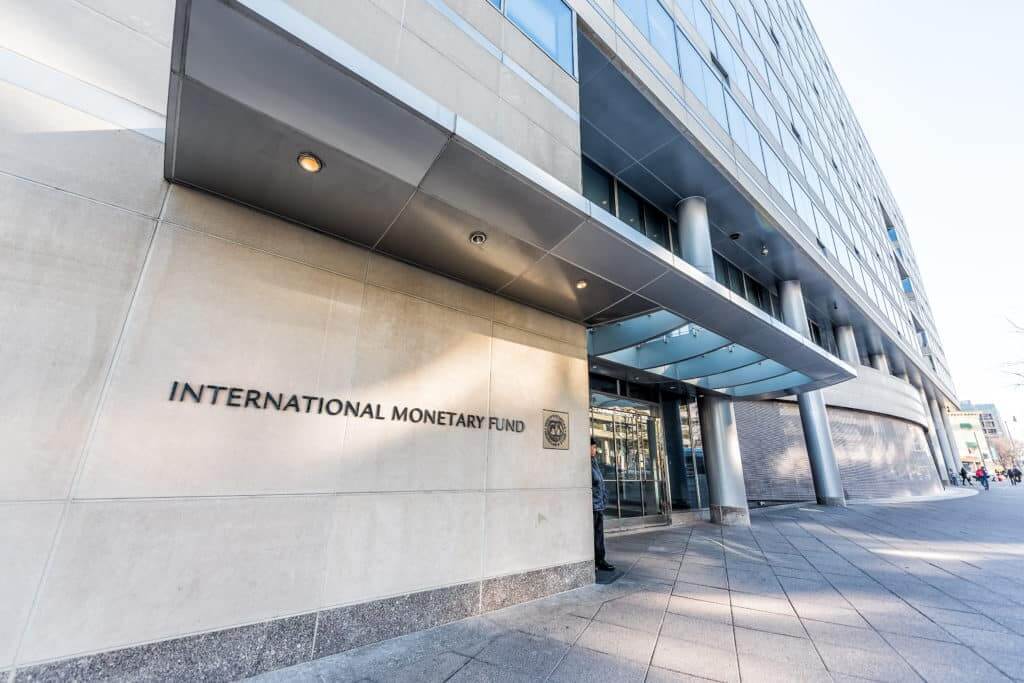Asia to Experience Its Worst Economic Downturn in History, IMF Says
The Asian economy will contract by 1.6% in 2020. This is a more severe estimate in comparison to the zero growth prediction in April. This also represents the worst contraction in the history of Asia, the IMF says.
According to a recent blog post, by IMF’s chief economist Chan Yong Rhee, despite this contraction, Asia is still in “better shape” than other regions in the world.
The International Monetary Fund also stated that the previous April World Economic Outlook had inspiration from the “early stabilization” of coronavirus. However, due to “weaker global economic conditions” and variations in containment measures in some emerging economies, the IMF has revised the 2020 projections for most regions.
The previous forecast stated that Asia would record zero economic growth in 60 years. China would lead the race with a 1.2% growth.
Asia Is Vibrant, but the Global Economy Will Affect Its Performance
The protracted recovery shows that the coronavirus pandemic has been “very costly” to Asia’s economic growth.
Keeping the chances of a second wave of infections low and sufficient economic support stimulus from the region’s countries, the IMF predicts that growth in the region could rebound to 6.6% next year.
However, the economic effect of the coronavirus on industrial production will likely derail the “fast pickup” of the economic activity.
“We project Asia’s economic output in 2020 to be about 5% lower compared with the level predicted before the crisis, and this gap will be much larger if we exclude China, where economic activity has already started to rebound” Stated Yong Rhee.
IMF Projections Forecasts a “Strong Rebound” In Private Demand
The IMF said their projections are optimistic. However, a few factors involving trade, prolonged lockdowns, increased employment inequality, and geopolitical tensions will likely affect the real outcome.
According to the IMF, Asia is likely to experience “slower growth in trade”. This is due to its heavy dependency on the global chains of supply.
‘Asia is heavily dependent on global supply chains and cannot grow while the whole world is suffering.” Yong Rhee said.
In Japan, India, and the Philippines, exports and imports will likely contract by about 20%. This will be fueled by weakening “external demand,” which will affect trade in the whole Asian region.
“Reorienting Asia’s growth model toward demand and away from heavy reliance on exports has begun but will take more time to be completed.”
Apart from trade, lockdown measures will also affect growth. This is since economic activity will still have limits when restrictions fully lift. The pandemic is prolonging. The more it stays, the more profoundly it is likely to change behavior on a personal level.
IMF conducted a recent study to investigate the likely economic effects of coronavirus lockdown measures, which found out that the effect on economic activity goes beyond industrial production.
“…while a lockdown may lead to a contraction in economic activity as measured by industrial production-of about 12 percent a month, a full reversal in containment measures may increase economic activity by only 7 percent.” He stated.
Additionally, Asian pacific island countries are heavily reliant on “in-person contact” services like remittances and tourism, which analysts expect to take the longest time to recover.
Asia Has Implemented Good Monetary and Fiscal Support Measures
Rising inequality in the formal and informal employment sectors and weak investor sentiments may further affect economic recovery in the region.
However, the IMF stated that most Asian countries have provided sufficient economic support. This, while effective, might not last a prolonged lockdown period.
The IMF, therefore, recommends a few policies for recovery. For example, increased efficiency between monetary and fiscal policy. Or reallocating resources to critical players in the banking sector. Also addressing inequalities in health, finance, employment, and regulatory obstacles.
“Access to health and basic services, finance, and the digital economy should be broadened. Social safety nets should be expanded to extend unemployment insurance coverage to informal workers.”
Global Economy to Shrink By 3% In 2020
In its most recent World Economic Outlook projection, the IMF stated that the global economy will shrink by 3% in 2020, with “deep contractions” in Asia’s biggest trading partners like the U.S. and Europe.
According to the IMF, the U.S. economy will shrink by 5.9% less than Europe’s prediction at 7.5%. In Asia, the rebound will likely hit 6.6% in 2021. However, economic activity level in all three regions will take time to recover in IMF’s estimates.
“The global community must act now to avoid a repeat of this catastrophe by building global stockpiles of essential supplies and protective equipment, funding research and supporting public health systems, and putting in place effective modalities for delivering relief to the neediest.” He stated.
However, current economic news might take a turn for the worse. That is, if a second wave of infections hits Asia. Many countries are likely to have less resources to cushion their economies for a second time. Certainly not with the same vigilance as the first time.
“So I wonder, if the second wave happens, whether the Asian governments can use the same stimulus as in the first crisis,” he said. “So, we have to be more concerned, more cautious.”

